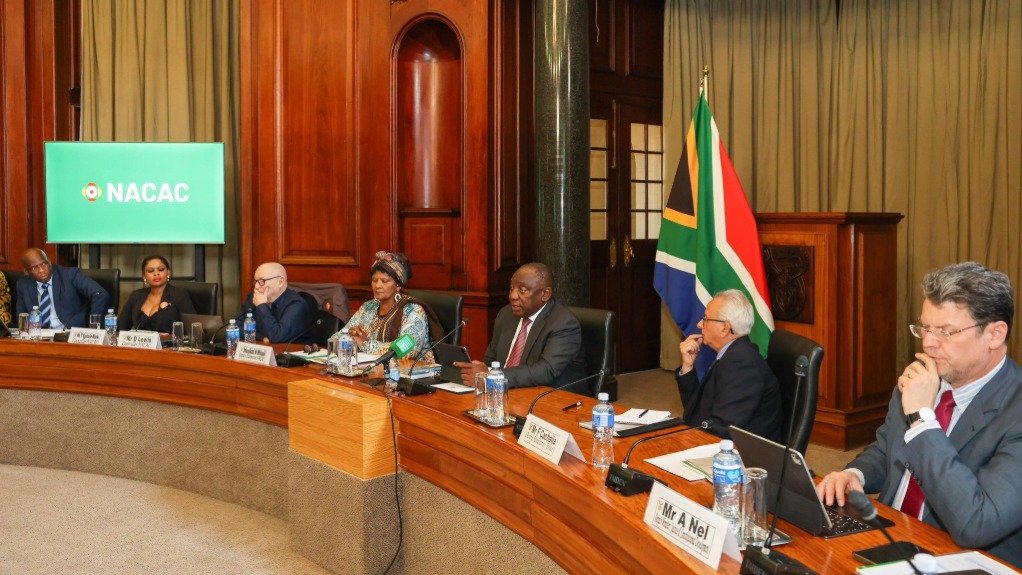President Cyril Ramaphosa on Thursday received the close-out report from the National Anti-Corruption Advisory Council (NACAC), the findings of which will soon be released publicly, said the Presidency.
Ramaphosa chaired the meeting of the NACAC, at the Union Buildings in Pretoria, where he said the observations and recommendations would be a priority for the national executive and the relevant institutions.
The Council was appointed by Ramaphosa in 2022 to guide the implementation of the National Anti-Corruption Strategy and, among other things, to advise on strengthening the State’s anti-corruption architecture.
The council's membership consists of senior representatives from various sectors, including government, civil society, business, labour and academia.
The NACAC report consists of a set of recommendations which includes the establishment of a permanent, independent, overarching anti-corruption body; the strengthening and coordination of law enforcement agencies; the use of artificial intelligence to prevent corruption; and the establishment of an anti-corruption data sharing framework.
Addressing the NACAC, Ramaphosa said government needed to build transparent, accountable and ethical public and private institutions that were free of corruption.
He noted that while attention was given to efforts that detect and act against corruption, government preventing corruption would be real success.
Reflecting on the end of the three-year term of the NACAC, Ramaphosa said government needed to build a society characterised by responsibility and integrity.
The report would be thoroughly reviewed and, where possible, swiftly acted on, he assured.
“The report, observations and recommendations clearly demonstrate the extensive work and significant thought that NACAC has applied to these challenges. NACAC has given full effect to its mandate and has provided a firm, evidence-based foundation to take forward a comprehensive response to corruption,” Ramaphosa said.
Once the national executive processes the NACAC recommendations and tables and deliberates on these in Cabinet, the final set of recommendations adopted will be implemented in accordance with the relevant and established statutory provisions and processes.
EMAIL THIS ARTICLE SAVE THIS ARTICLE ARTICLE ENQUIRY FEEDBACK
To subscribe email subscriptions@creamermedia.co.za or click here
To advertise email advertising@creamermedia.co.za or click here











